President Zardari: Unilateral decisions causing strain on federation
4 min readPresident Asif Ali Zardari addressed a joint session of Parliament amid intense opposition protests, urging the government to reverse its decision to extract canals from the Indus River.
He asserted that he could not support unilateral decisions that put excessive strain on the federation and called for prioritizing national interest over personal and political gains.
The session, chaired by National Assembly Speaker Sardar Ayaz Sadiq, marked the beginning of the new parliamentary year. As per the agenda, the president’s address was the sole item on the schedule.
Opposition protests
The session commenced with the national anthem, followed by the recitation of the Holy Quran and a Naat. As soon as the session began, PTI lawmakers entered the House, chanting slogans and carrying placards.
Also, read this
President Zardari urges party workers to prepare for local elections
FAFEN report: Women parliamentarians outshine men in legislation
As Speaker Ayaz Sadiq invited President Zardari to deliver his speech, the opposition intensified its protest.
PTI members banged desks, shouted slogans in favor of their jailed party founder, and disrupted the proceedings.
Amid the noise, President Zardari and Prime Minister Shehbaz Sharif put on headphones. Zardari, at times, smiled while looking towards the opposition, while PTI leader Omar Ayub forcefully banged his fists on the desk in protest.
In his address, President Zardari noted that this was his eighth speech as a civilian president and a reflection of Pakistan’s ongoing democratic journey.
He stressed the need for Parliament to focus on good governance, political stability, and economic progress to meet the expectations of the people.
He commended the government’s economic policies, citing improvements in foreign exchange reserves, foreign direct investment, and a record-high stock market. He highlighted the reduction of the policy rate from 22% to 12% as a positive step.
Emphasising governance, Zardari urged ministries to redefine their goals and resolve public issues within a set timeframe.
He called for increasing domestic and international investment, ensuring economic justice, and implementing reforms in key sectors such as infrastructure, education, and healthcare.
On taxation, he stressed the need to expand the tax net to reduce the burden on existing taxpayers. He also highlighted the importance of diversifying exports and making the IT industry a central pillar of economic growth.
The president urged special support for small and medium-sized enterprises (SMEs) and proposed initiatives to boost youth entrepreneurship.
He acknowledged the economic difficulties faced by salaried individuals and laborers, recommending wage and pension increases in the upcoming budget.
Focus on social and regional development
Zardari called for enhancing women’s representation in the workforce and strengthening the Benazir Income Support Program. On education, he emphasized enrolling all children in schools and increasing funding for higher education and research.
Reiterating his opposition to extracting canals from the Indus River, he warned that unilateral government decisions were harming the federation. He stressed the need to improve primary healthcare services and tackle challenges like malnutrition and polio.
The president reaffirmed Pakistan’s commitment to the China-Pakistan Economic Corridor (CPEC) and the development of Gwadar Port, calling them critical to the country’s economic future. He also urged reforms in agriculture and fisheries to boost rural livelihoods.
Recognizing Pakistan’s vulnerability to climate change, he advocated for investment in renewable energy, carbon credits, and eco-friendly policies.
On national security, Zardari emphasised strengthening law enforcement agencies and ensuring effective counterterrorism measures. He reaffirmed Pakistan’s commitment to regional peace, economic stability, and international cooperation.
Reiterating Pakistan’s unwavering support for Kashmir, he urged the global community to take notice of Indian atrocities against Kashmiris.
The joint session was attended by Prime Minister Shehbaz Sharif, the military leadership, Deputy Prime Minister Ishaq Dar, Defense Minister Khawaja Asif, Bilawal Bhutto Zardari, Asifa Bhutto, Punjab Chief Minister Maryam Nawaz, Sindh Chief Minister Murad Ali Shah, Balochistan Chief Minister Sarfraz Bugti, and several other senior politicians and lawmakers.
Foreign diplomats were also present in the guest gallery, while strict security measures were enforced outside Parliament House.
In a light moment, PTI leader Pervez Khattak mistakenly walked toward the opposition benches before realizing his error and returning to shake hands with Prime Minister Shehbaz Sharif and Deputy Prime Minister Ishaq Dar.
A historic eighth address to parliament
This was President Zardari’s second address to the current parliament and his eighth overall — a record for any civilian president.
His speech marked the beginning of a new parliamentary year, continuing the tradition of reviewing progress and setting legislative priorities.
For the latest news, follow us on Twitter @Aaj_Urdu. We are also on Facebook, Instagram and YouTube.






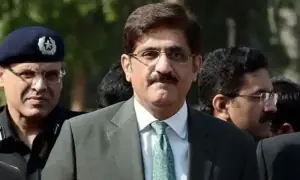
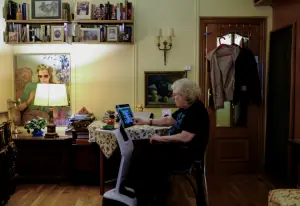







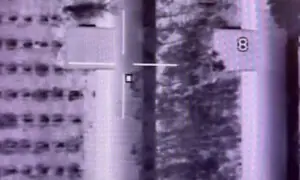
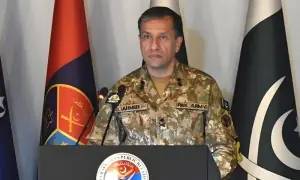
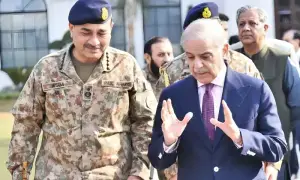
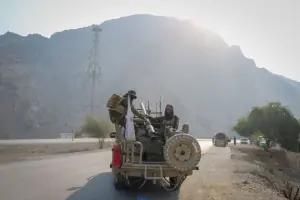


Comments are closed on this story.